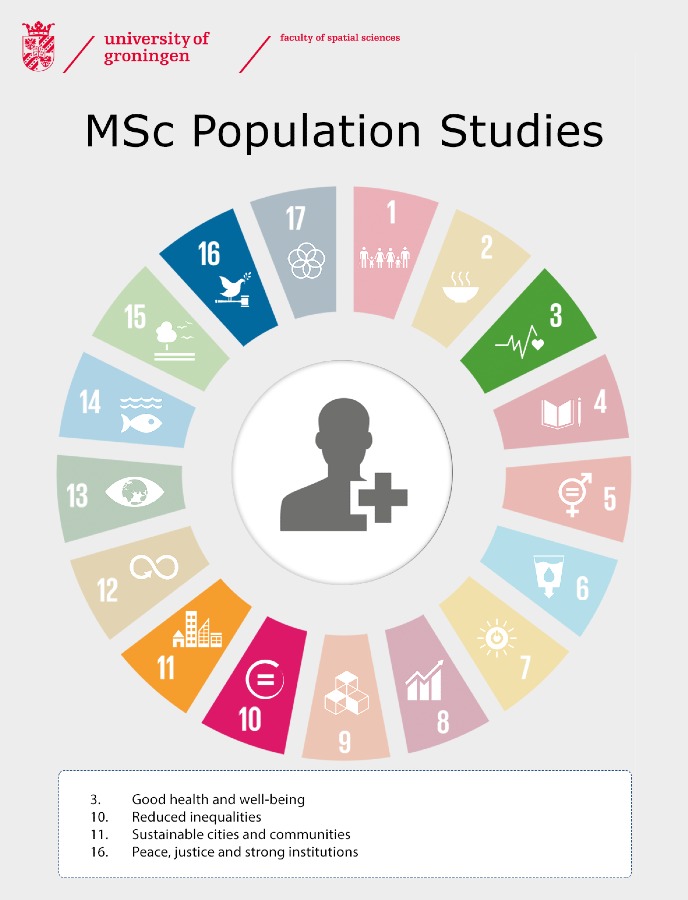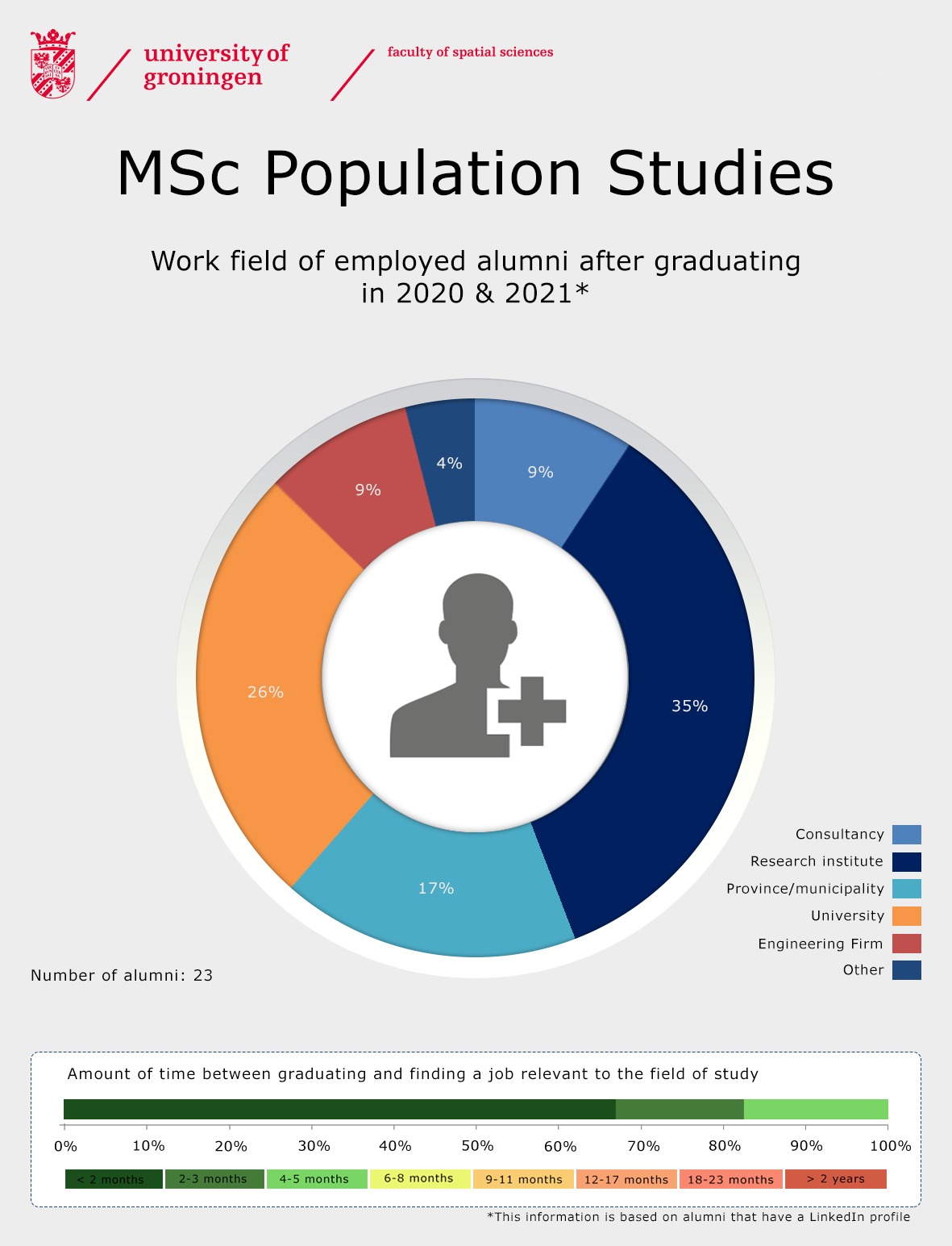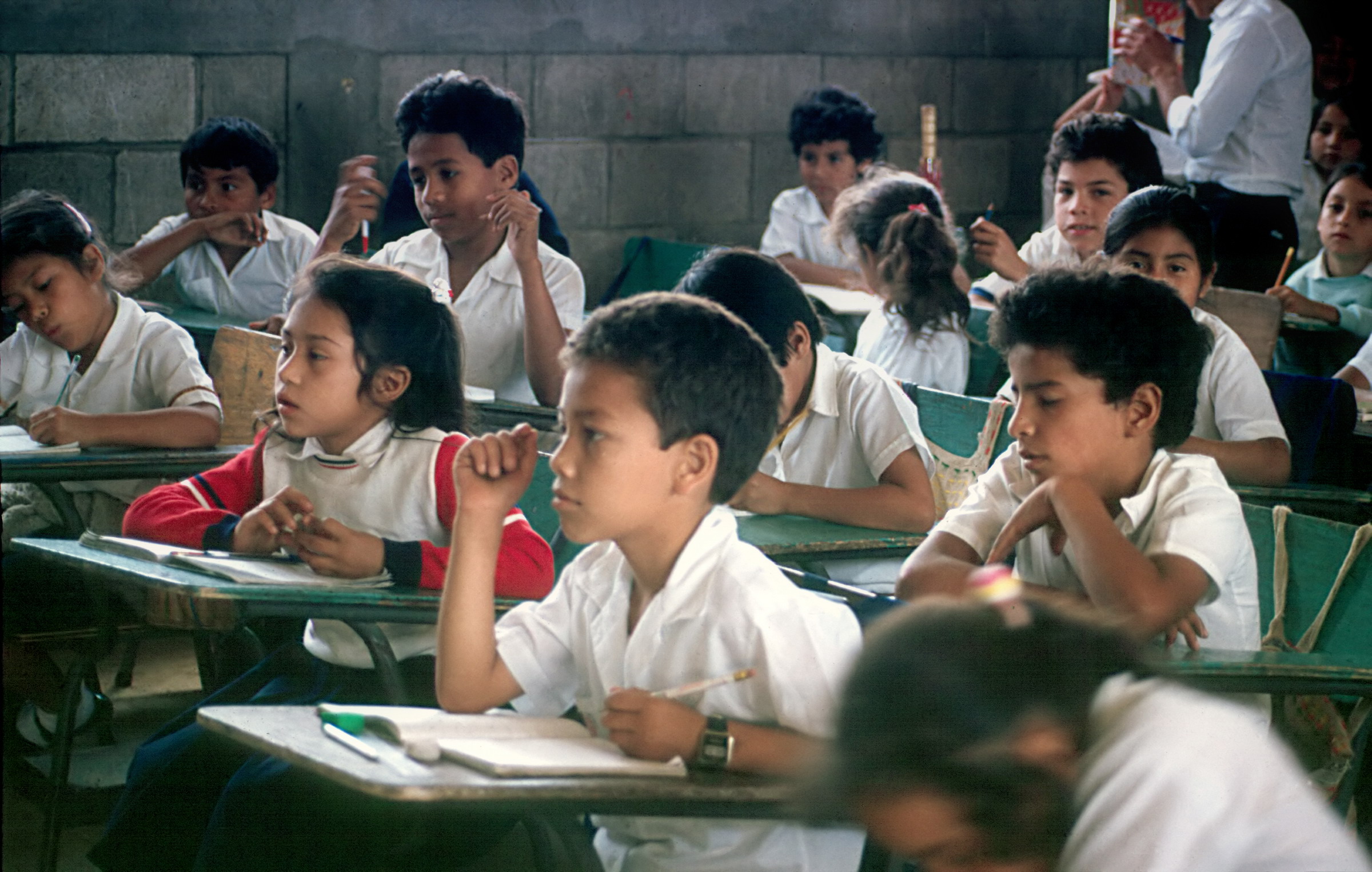Courses master Population Studies
Are you interested in studying contemporary population issues like ageing, integration of migrants, health inequalities and global population growth? In how individual choices concerning life events like family formation, residential choice and health care use are embedded in the contexts in which people live? In the master programme Population Studies students develop the theories, methods and skills required to become a versatile demographer.
What will you learn?
The programme of the master Population Studies consists of the following courses (click on the course titles for more information). The courses in this programme have been scored against the United Nations Sustainable Development Goals. Find a general overview of how all of our programmes relate to the SDGs.
Demographic Data and Analysis (5 EC)
The course provides an overview of data collection and analysis in quantitative population research. Systems of public statistics, including censuses, civil registration, surveys, surveillance systems and their resulting demographic data, are covered and debated focusing on their sources of errors, biases and uncertainty. Special attention is given to methods to provide an unbiased comparison of demographic indicators across populations and decompose differences into different components, such as age or causes of death, via the use of specific national populations.
Population, Health and Place (5 EC)
Health influences every life stage, affects the ageing process, and is shaped by the geographical context. This module is about the dual link between health - both at the individual and population level - and place or geography. In the course, we adopt both a global and a local perspective. For example, we look at how ageing and health are perceived in different cultural contexts; or at the inequalities that people experience when ageing in a nursing home, or when living with a disability.
Related SDG: 3 good health and wellbeing, 10 reduced inequalities
Qualitative Research for Policy & Practice (5 EC)
In this course, students are introduced to qualitative research in population studies following the qualitative research cycle and the relevance of academic population research for policy and practice. Data collection techniques such as focus-group discussion, in-depth interviewing and participant observation are discussed, and ethical considerations are applied. Ethical considerations are emphasized throughout the whole qualitative research cycle, notably in terms of privacy regulations, data management, the researcher’s positionality and data quality, validity and integrity. Students will produce and communicate their findings in a final report for an academic audience and in another format for non-academic stakeholders, such as a policy brief for policymakers.
Migration, Families & Households (5 EC)
This course encompasses the three main types of residential relocations: residential mobility, internal and international migration, in relation to family and household dynamics. The course takes a critical view on the inequalities people experience either on migration or due to migration both within and outside family and household settings.
Related SDG: 10 reduced inequalities, 11 sustainable cities and communities, 16 peace, justice and strong institutions
Populations Projections & Sustainability (5 EC)
Amidst global population growth, there are concerns about the impact of human activities in aggravating climate and environmental change and natural resource depletion. These concerns are informed by projections of future population growth. The accuracy of such population projections matters as policy and practice is built on them. This course focuses on the issues and assumptions of population growth and projections, climate change, and the implications for environmental sustainability and food security. The core of the course will be on a critical assessment of the methodology and the assumptions behind the main global population projections.
Related SDG: 11 sustainable cities and communities
Advanced Statistical Analysis (5 EC)
This course focuses on models for the description and analysis of demographic events and social relationships, such as linear regression, logistic regression and event history models. You will obtain substantial knowledge and practical experience concerning statistical models for the analysis of discrete and continuous time processes in life domains such as fertility, employment, migration, and health.
Master Thesis Population Studies (20 EC)
The Master's thesis topic is integrated in the research themes of the Population Research Centre or the Netherlands Interdisciplinary Demographic Institute.
Related Electives (10 EC)
Population Research Training
The Population Research Training (PRT) course introduces students to the practice of doing research including the application of social demographic theory and methods and the reporting of research outcomes. Students will participate in active research under the supervision of a staff members of the Population Research Centre (PRC). In collaboration with their supervisor, students can contribute to a variety of different research projects ranging from the analysis of quantitative or qualitative data, over systematically reviewing literature to smaller field studies or primary data collections.
Optional Courses
Examples of potentially interesting elective modules are Economic Geography (including a field trip) or City Matters (including a field trip). For an overview of other possible courses within the university, please visit course catalogue Ocasys.







